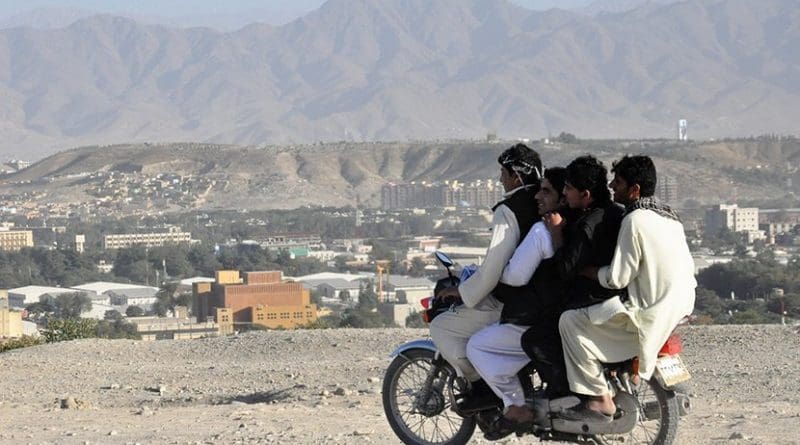The Message From Kabul – Analysis
By Dr. Shanthie Mariet D Souza
Prime Minister Manmohan Singh’s visit to Kabul this week appears to have unveiled an era of decisive and confident Afghan policy, enough to silence critics, encourage optimists and, most importantly, instill confidence among the Afghans that India is a reliable friend.
The Indian presence in Afghanistan remains critically linked to the security situation that is maintained predominantly by US and NATO forces. Such a predicament is not unique to India, however. In case of an early drawdown of forces and the return of chaos, few countries of the civilised world would have the capacity and inclination to remain in Afghanistan.
Dr Singh announced India’s support for the Afghan reconciliation effort currently underway, which gels well with the country’s own experience and stand that “democracy is a means to give political expression to pluralism”. This marks a significant and bold shift and shows a will to invest in the future that Afghans choose for themselves in building an inclusive political order.
Many Afghan watchers tend to view the programme for reconciliation with the Taliban as the return of the Afghan Taliban leadership to the seat of power in Kabul. They see this benefiting Pakistan that would then return to using Afghanistan as a “strategic asset” in a post US-negotiated order. This view betrays ignorance of the realities on the ground.
First, post-Osama speculations are rife regarding the possibility of an accelerated US withdrawal from the region. Preliminary indications emerging from Washington, however, point to the contrary. The continuing relevance of Al Qaeda-linked groups and the threats of continued violence by the Taliban will ensure a prolonged international troop presence in Afghanistan, although the focus on counter-insurgency might gradually move towards counter-terrorism with a limited troop presence in a few strategic bases.
Second, in spite of its projected weaknesses, the Indian presence in Afghanistan is characterised by inherent strengths. Apart from the fact that Indian aid (earlier over $1 billion and now raised by another $500 million) is well received in Afghanistan, the decade-long investment in development, including roads, electricity, schools, hospitals and community projects, has generated tremendous goodwill for India among ordinary Afghans.
Talking to Afghans in Kabul a day before Dr Singh landed, it was possible to perceive huge expectations from India. Afghans recognise that India is a friendly country that does not get involved in their internal politics. The deep historical, socio-cultural and civilisational relationship between the two countries and the role India has played so far are reflected in the growing expansion beyond the largely well-received economic footprints. The most significant of India’s projects, the Zaranj-Delaram road, has led to a thriving trade and consequent growth in custom revenues. The joint statement of May 12 by the two countries reflects Indian optimism and inclination to carry forward the legacy.
The announcement of an additional outlay of $500 million for small development projects is an assertion of India’s commitment to Afghan people, particularly in the insurgency-ravaged south and east Afghanistan. There will be more scholarships, institution-building efforts, social development and higher investment in the health sector. Dr Singh has promised to upgrade the agricultural faculty at the Kabul University to an agricultural university, donate tractors to farmers and give scholarships for the study of agricultural sciences. By investing heavily in building capacity among the Afghan farmers, many of whom are in the process of switching from poppy to a viable crop alternative, India is clearly aiding the alternative livelihoods in an agrarian country which is in need of reviving its economic base and employment and revenue-generating opportunities.
Third, deep cultural links between the two countries would now be strengthened thanks to India’s promised assistance to preserve and revive Afghanistan’s archaeological and cultural heritage, including Afghan music and restoration of the historic Stor Palace in Kabul.
Fourth, getting involved militarily in the affairs of other countries has never been India’s forte and the prime minister has done well to resist the temptation. India can, however, still think of getting involved in capacity-building and reforms targeting the security sector in Afghanistan. A strong and capable Afghan security force would be the best protection Indian interests can receive in Afghanistan.
A lot is always said about the insecurities that growing Indian involvement generates in Pakistan. If that is true, the series of announcements made during the visit could lead to further heartburn in Islamabad, which is currently recovering from a huge diplomatic embarrassment. However, Pakistan should realise that investment in the long-term development of Afghanistan is a better option than viewing it as an asset offering “strategic depth” against India. The Indo-Pak competition in the reconstruction of Afghanistan would go a long way in helping both Afghanistan and Pakistan. Dr Singh, in his address to Afghan Parliament, pointed out that “renewing ties of friendship, solidarity and fraternity is the only agenda India has in Afghanistan”. India’s strategic objectives would be based on this strong and durable foundation.
Dr Singh’s emphasis on regional cooperation and the need to evolve a south Asian identity in re-building Afghanistan will go down well in the region. Indeed, all countries in the region have a stake in reviving their “civilisational” relationship with Afghanistan and in becoming willing partners in its long-term development.

